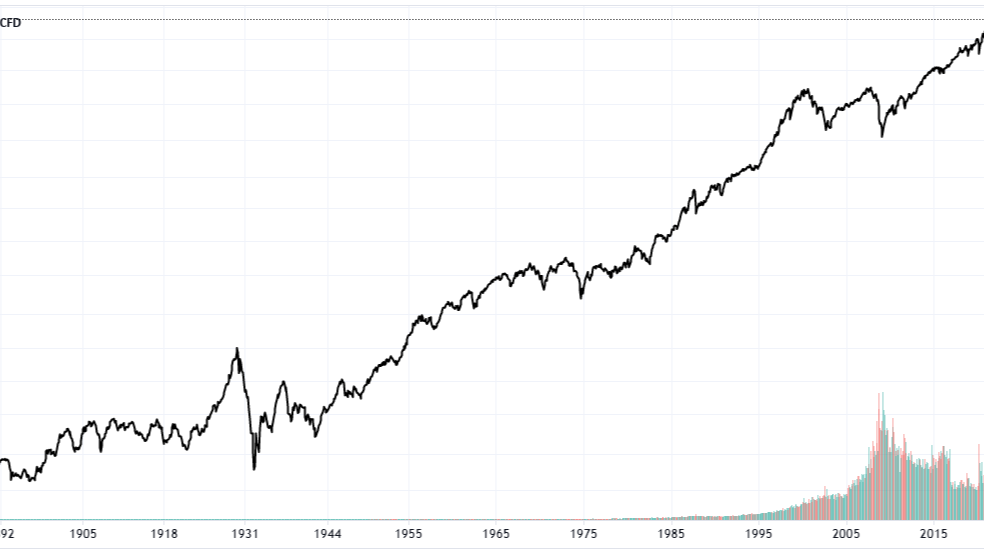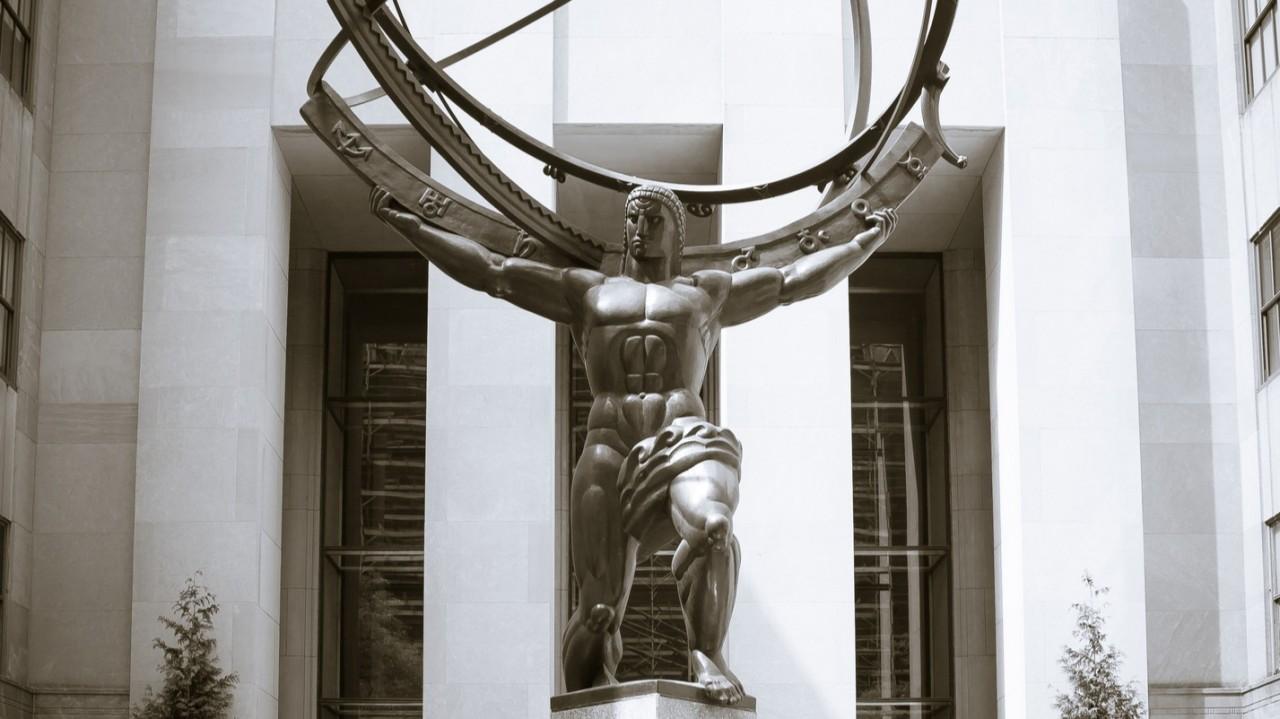Whirlwind tour of Australia, California too. There’s increasing talk about a growing strategy amongst the world’s largest allocators. A total portfolio approach to investing. We presented two illuminating whitepapers related to the topic that Patrick Kazley on my team published: Convexity, Correlation, and Compounding [here], and The Convexity (Re)Balancing Act [here]. Talked crypto too. The Case for Digital Assets [here] from Jan 2021 still rings true. And I managed a stop in Jackson Wyoming, on the final leg. A little early autumn altitude, the aspens a gentle yellow, grasshoppers in a panic, peaks dusted white, the mountain sun still hot.
Overall: “Today, unemployment is up to 4.2 percent, inflation's down to a few tenths above 2. So, we know that it is time to recalibrate our policy to something that is more appropriate given the progress on inflation, and on employment, moving to a more sustainable level, so the balance of risks are now even,” answered Chairman Powell. He had just cut interest rates by 50bps. “The labor market is actually in solid condition. And our intention with our policy is to keep it there. You can say that about the whole economy. The US economy is in good shape. It’s growing at a solid pace, inflation is coming down, the labor market is in strong pace, we want to keep it there. That’s what we’re doing,” explained Jerome, the financial reporters gently tossing him the usual softballs. Naturally no one asked him how he felt about initiating an easing cycle with the stock market at all-time highs. “We’re trying to achieve a situation where we restore price stability without the kind of painful increase in unemployment that has come sometimes with disinflation. That’s what we’re trying to do. And I think you can take today’s action as a sign of our strong commitment to achieve that goal,” explained Powell. No one asked whether he took into consideration forward-looking inflation indicators like gold, which has soared to a new record. And Bitcoin is up 137% over the past year. “And this is the beginning of that process I mentioned, the direction of which is toward a sense of neutral, and we’ll move as fast or as slow as we think is appropriate in real-time.” No one asked him about AI, infrastructure buildout, the coming electricity shortage, the intensifying trade war with China, how the Inflation Reduction Act is impacting policy, or whether he thinks monetary policy is all that important, now that politicians of both parties seem comfortable running deficits that throughout history were only seen during times of war.
Week-in-Review: Mon: Dudley thinks fed will (and should) cut 50bp, Senator Warren calls for Fed to cut 75bp, Trump survives another assassination attempt over the weekend / blames Harris for ‘highly inflammatory language’, ECB’s Kazak (hawk) says Oct cut would require unexpected hit to economy / Kazimir (hawk) says will almost surely wait until Dec, AMZN to require employees to be in office 5d/week beginning in Jan 2025, Netanyahu may replace Def Min Gallant with opposition leader Gideon Saar, US Empire mfg 11.5 (-4.0e), S&P +0.1%; Tue: WSJ’s Timiraos publishes another Fed story with less bias towards 50bp cut, Hezbollah accuses Israel of causing pagers to explode across Lebanon, US/China economic officials to meet in Beijing Sept 19/20, Intel delays German chip plant, India wholesale prices 1.31% (1.78%e), Germany Zew current situation -84.5 (-80e) / expectations 3.6 (17e), Canada CPI 2% (2.1%e) / Trim Core 2.4% (2.5%e), US control grp ret sales 0.3% as exp, US IP 0.8% MoM (0.2%e), US NAHB housing mkt index 41 as exp, S&P flat; Wed: Fed cuts 50bp (-40bp priced) / Bowman dissents as first governor to dissent since ’05 / Powell emphasizes 50bp isn’t a new pace and today’s move is a ‘recalibration’, Brazil CB hikes 25bp as exp, SEC approves rule that will allow stocks/ETFs to trade on exchange in half-penny increments, more telecom devices explode in Lebanon, ECB’s Nagel says need to be patient in beating infl, Germany to halt arms exports to Israel, Japan core machine orders 8.7% (2.5%e), UK CPI 2.2% as exp / RPI 3.5% (3.4%e), S. Africa CPI 4.4% (4.5%e) / Core 4.1% (4.2%e), US Housing starts 1356k (1318k e), US FOMC rate decision upper 5.00% (5.25%e) / lower 4.75% (5.00%e), Argentina 2Q GDP -1.7% (-1.4%e), S&P -0.3%; Thu: Taiwan CB unch as exp / raises RRR 25bp, BOE unch as exp / vows a gradual approach to easing, Turkey CB unch as exp / removes specific ref to further tightening, S. Africa CB cuts 25bp as exp, EU and Beijing agreed to intensify talks as they seek to avert tariffs on China-made EVs, N. Zealand 2Q GPD -0.5% (-0.6%e), AU emp chg 47.5k (26k exp) / unemp 4.2% as exp, Poland PPI -5.1% (-4.8%e), US initial jobless claims 219k (230k e), US leading index -0.2% (-0.3%e), S&P +1.7%; Fri: BOJ unch as exp and kept tone largely unch from July meeting, EU announces 35b EUR loan to Ukraine backed by interest from seized Russian assets, Three Mile Island nuclear plant to be revived for Microsoft AI power generation needs, gold reaches fresh all-time high, IDF reports killing of senior Hezbollah military commander in Beirut, Japan CPI 3% as exp / Core 2% as exp, China 1y and 5y LPR unch as exp, UK ret sales 2.3% (1.1%e), US Public sector borrowing 13.7b (12.6b exp), Germany PPI -0.8% (-1%e), Canada ret sales 0.9% MoM (0.6%e), EU cons conf -12.9 (-13.2e), S&P -0.2%.
Weekly Close: S&P 500 +1.4% and VIX -0.41 at +16.15. Nikkei +3.1%, Shanghai +1.2%, Euro Stoxx -0.3%, Bovespa -2.8%, MSCI World +1.5%, and MSCI Emerging +1.6%. USD rose +2.5% vs Russia, +2.1% vs Yen, +1.1% vs Mexico, +0.6% vs Turkey, and +0.6% vs Chile. USD fell -7.7% vs Bitcoin, -7.2% vs Ethereum, -1.7% vs South Africa, -1.6% vs Indonesia, -1.5% vs Australia, -1.5% vs Sterling, -1.0% vs Brazil, -0.8% vs Euro, -0.7% vs China, -0.6% vs Sweden, -0.4% vs India, and -0.1% vs Canada. Gold +1.4%, Silver +1.4%, Oil +4.8%, Copper +2.5%, Iron Ore -4.2%, Corn -2.8%. 10yr Inflation Breakevens (EU +3bps at 1.74%, US +7bps at 2.15%, JP -6bps at 1.13%, and UK +6bps at 3.36%). 2yr Notes +1bp at 3.59% and 10yr Notes +9bps at 3.74%.
2024 Year-to-Date Equity Index Close: Argentina +64.7% priced in US dollars (+96.1% priced in pesos), Malaysia +25.3% priced in US dollars (+14.7% priced in ringgit), NASDAQ +19.6% priced in dollars, S&P 500 +19.6% in dollars, Hungary +18.5% (+20.6%), India +18.4% (+18.7%), Taiwan +18.1% (+23.6%), Spain +17.5% (+16.3%), MSCI World +16.4% in dollars, Denmark +16% (+14.9%), Netherlands +15.2% (+14.1%), Ireland +14.9% (+13.8%), Belgium +14.8% (+13.7%), Turkey +14.8% (+32.5%), Singapore +14.4% (+11.9%), Germany +12.9% (+11.8%), South Africa +12.4% (+7.6%), Italy +12.3% (+11.2%), Philippines +12% (+12.4%), Czech Republic +11.7% (+12.3%), Greece +11.3% (+10.2%), UK +11.1% (+6.4%), Canada +11% (+13.9%), Japan +10.4% (+12.7%), Russell +9.9% in dollars, Euro Stoxx 50 +8.8% (+7.7%), Indonesia +8.1% (+6.5%), Australia +7.9% (+8.1%), HK +7.4% (+7.1%), Poland +7.1% (+4.2%), Thailand +6.4% (+2.5%), Norway +6.3% (+10.2%), Austria +6.3% (+5.3%), Sweden +6.3% (+7.6%), Switzerland +5.9% (+7.1%), New Zealand +4.4% (+6%), Colombia +2.5% (+10.5%), Israel +1% (+5.5%), Saudi Arabia +0.9% (+0.9%), France +0.4% (-0.6%), Finland -0.2% (-1.2%), UAE -1.5% (-1.5%), Portugal -1.5% (-2.4%), Chile -3.5% (+2.2%), Korea -5.6% (-2.3%), China -7.3% (-8%), Brazil -13.9% (-2.3%), and Mexico -20.6% (-9.1%)
Venturing: “Intuitively most, many, many people anyway, would say we’re probably not going back to that era where there were trillions of dollars of sovereign bonds trading at negative rates, long-term bonds trading at negative rates,” said Chairman Powell, answering a question at the press conference. I was reading the transcript somewhere over the Pacific, at 41,000 feet. “And it looked like the neutral rate was, might even be negative, so and it was, people were issuing debt at negative rates,” said Powell, trying to explain something that probably defies definition.
Venturing II: “It seems that’s so far away now, my own sense is that we’re not going back to that,” continued the Fed Chairman. “But honestly, we’re going to find out. But it feels, feels to me, and that the neutral rate is probably significantly higher than it was back then,” he said, wrestling with his emotions, uncharacteristically touchy feely for the Chairman. But that’s just the sort of thing that happens when highly intelligent people venture into the unknown. They feel their way. “How high is it? I don’t think we know. It’s again, we only know by how it works.”
Venturing III: Since I couldn’t ask Powell a question, and since the reporters seemed uninterested in pursuing the only line of questioning that seemed interesting, I fed those quotes into ChatGPT4o and asked if the person speaking sounded like he knew what he was talking about?
“The person in this statement does not sound particularly confident or certain. Here's why: Hesitation and Repetition: The use of phrases like "most, many many people anyway" and "so and it was, people were issuing debt" suggests uncertainty or a lack of clarity in their thought process. Indecisive Phrasing: The speaker uses terms like "might even be," "probably," "my own sense," and "I don’t think we know," all of which indicate a lack of firm conviction or precise knowledge. Contradiction: The speaker says, "we're going to find out" and "we only know by how it works," which implies they don't have a clear answer and are relying on future outcomes to provide clarity.
Venturing IV: I like really smart people who admit they don’t know things, especially when most people expect them to. Those kinds of people are in short supply. So, we’re lucky to have Powell in his seat. But the Fed completely underestimated inflation, got hopelessly behind the curve, then hiked rates in an unprecedented fashion. They thought the natural rate of interest for the world’s largest economy was probably negative, and in a few short years changed their minds and think it’s probably positive. The only bear market left is in the value of an economics PhD.
Venturing V: From 41,000 feet the world looks as it has for thousands of years, and certainly as it did under Greenspan, Bernanke, Yellen. Back then, people believed central bankers knew what they were doing, and they were the most powerful players in markets. But now, we are coming to terms with a new world, where Powell and his people are feeling their way forward, in an economic environment that barely resembles recent decades. And where the most powerful players are no longer the bankers, but the politicians, their deficits, debts. This is going to be fun.
Anecdote: I could feel the altitude today. Felt good. Just a little more alive, alert, grinding my way up from the valley floor to some minor peak, the Tetons in the distance. Fifteen of us climbed the Grand Teton this past July, family, friends, guides. One of the great pleasures of climbing mountains is to return to the valley and forever remember the moment you stood at that summit; arms stretched wide, looking out, around, down. Pretty sure everyone remembers their summits, the jagged beauty, the cold thin air, deep blue sky, adrenaline, achievement, and the acceptance that you’re only halfway done. I remember the 2000 peak in stocks, a series of cascades, then came 9/11. Really bad events that affect markets mostly happen after prices have rolled over, trapped bulls praying for new highs. October 1987 followed an August peak. There was no dramatic top in 2008 even though most remember it that way. It was a bit more of a rounded summit that started in 2007. Like many peaks you find in Scotland, Iceland, windswept, grassy, gravel. The Lehman crash came well into that descent, which hit like a force of nature. I lived the 2021 peak in Bitcoin too. We had been selling on the way up and at 59,000, over 300% higher from where it stood not much more than a year prior, you felt the air thin, cold. Yet pretty much everyone felt naked not being max long at that high. That’s how markets form meaningful peaks. It’s like a geologic force manifesting in mass human psychology, greed, FOMO. And after the crash down to 15,000, we find ourselves back above 59,000. It first made a new high this March at 72,750 and has been quietly chopping around ever since, like Himalayan sherpas, acclimatizing to this new altitude. Waiting for its time to press higher still, just like the S&P 500, Gold, literally everything priced in paper. Because unlike mountains, in a fiat system, designed to debase, no summit lives eternal.
Good luck out there,
Eric Peters
Chief Investment Officer
One River Asset Management
Disclaimer: All characters and events contained herein are entirely fictional. Even those things that appear based on real people and actual events are products of the author’s imagination. Any similarity is merely coincidental. The numbers are unreliable. The statistics too. Consequently, this message does not contain any investment recommendation, advice, or solicitation of any sort for any product, fund or service. The views expressed are strictly those of the author, even if often times they are not actually views held by the author, or directly contradict those views genuinely held by the author. And the views may certainly differ from those of any firm or person that the author may advise, converse with, or otherwise be associated with. Lastly, any inappropriate language, innuendo or dark humor contained herein is not specifically intended to offend the reader. And besides, nothing could possibly be more offensive than the real-life actions of the inept policy makers, corrupt elected leaders and short, paranoid dictators who infest our little planet. Yet we suffer their indignities every day. Oh yeah, past performance is not indicative of future returns.





